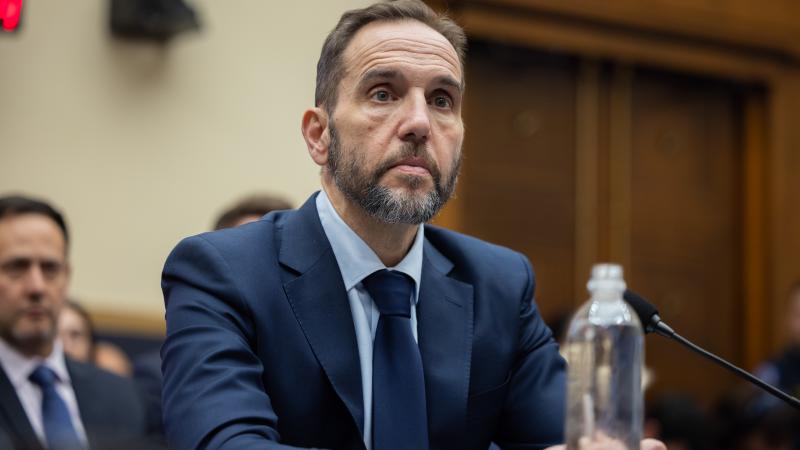Durham filing raises prospect history might have changed if Clinton lawyer hadn't lied
Prosecutor suggests FBI might not have proceeded with key part of Russia probe if Michael Sussmann had told the truth.
It was an allegation that dogged Donald Trump for three years: a claim the Republican nominee-turned-president had a secret backdoor communications channel with the Kremlin. Repeated endlessly by the liberal media, the allegation was never true.
Now, Special Counsel John Durham is raising the tantalizing specter the FBI might never have investigated the claim during the height of the 2016 presidential election if the man who brought it to the bureau — Hillary Clinton campaign lawyer Michael Sussmann — had told the truth about its origins.
In his latest court filing this weekend, Durham gave his most sweeping assessment yet about the consequences of Sussmann hiding the fact that he brought the allegation to the FBI on behalf of the Clinton campaign and a computer executive aligned with the campaign.
"Had the defendant truthfully informed the FBI General Counsel that he was providing the information on behalf of one or more clients, as opposed to merely acting as a 'good citizen,' the FBI General Counsel and other FBI personnel might have asked a multitude of additional questions material to the case initiation process," Durham told the court in a memo filed late Friday.
"Given the temporal proximity to the 2016 U.S. presidential election, the FBI also might have taken any number of different steps in initiating, delaying, or declining the initiation of this matter had it known at the time that the defendant was providing information on behalf of the Clinton campaign and a technology executive at a private company," he added.
Sussmann is accused of lying to the FBI by claiming he was not working on behalf of any clients when he fed then-FBI General Counsel James Baker allegations the GOP nominee had a secret computer channel to the Kremlin.
Sussmann recently asked the judge in his case to dismiss a charge of lying to the FBI, arguing his alleged false statement to the FBI was not material to the case and was protected by the First Amendment.
Durham responded Friday with a sweeping rebuke of Sussmann's conduct, taking aim at his defense that his alleged lies were constitutionally protected speech
"Far from finding himself in the vulnerable position of an ordinary person whose speech is likely to be chilled, the defendant — a sophisticated and well-connected lawyer — chose to bring politically-charged allegations to the FBI's chief legal officer at the height of an election season," Durham wrote the judge.
"He then chose to lie about the clients who were behind those allegations," he added. "Using such rare access to the halls of power for the purposes of political deceit is hardly the type of speech that the Founders intended to protect. The Court should therefore reject defendant's invitation to expand the scope of the First Amendment to protect such conduct."
Durham also revealed that he plans to deliver testimony at trial from several FBI and government witnesses that Sussmann's false statement was material and relevant and could have influenced the course of the Russia collusion case.
"The expected testimony of multiple government witnesses will refute the defendant's argument that the defendant's false statement was immaterial," Durham wrote. "As noted above, the government expects that current and former FBI employees will testify at trial that understanding the origins of data and information is relevant to the FBI in multiple ways, including to assess the reliability and motivations of the source.
"None of this is novel. An evaluation of a source can (and often does) influence the FBI's decisions regarding its initial opening decisions and subsequent investigative steps. That alone is sufficient to establish materiality."
















